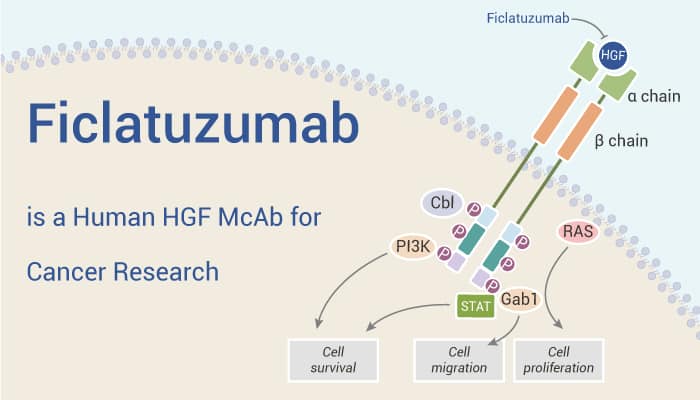Hepatocyte growth factor (HGF) is an effective angiogenesis peptide. Specifically, it is produced by stromal cells and mesenchymal cells. It stimulates epithelial cell proliferation, movement, morphogenesis, and angiogenesis in various organs through tyrosine phosphorylation of its homologous receptor Met. Besides, HGF is located at 7q21 and has a length of more than 70 kb. It encodes inactive pre-pro HGF. Moreover, HGF is a pleiotropic growth factor, which is essential for liver regeneration. Moreover, it is the main mitotic stimulator in driving the proliferation of liver cells. The activation and utilization of HGF is a key event of liver regeneration and provides early and continuous signals for hepatocyte proliferation.
In addition, the HGF Met signaling pathway is biologically related to cancer types, neurons, and immunity. HGF is an important part of the pathophysiology of insulin resistance (IR). Meanwhile, it is elevated in most common IR disorders, including obesity. Nonetheless, HGF plays a role in glucose metabolic flux in different insulin-sensitive cell types. Therefore, the HGF level is a biomarker of disease status/progression, while the HGF/c-Met signal pathway modulator can effectively regulate IR and treat diabetes. Here, we will introduce a monoclonal antibody (McAb) targeting human HGF, Ficlatuzumab.
Ficlatuzumab is a Human Hepatocyte Growth Factor (HGF) McAb.

First of all, Ficlatuzumab is a monoclonal antibody (McAb) targeting human hepatocyte growth factor (HGF). Particularly, Ficlatuzumab blocks the activation of the HGF/c-Met signaling pathway. Obviously, Ficlatuzumab inhibits c-Met receptor-mediated cancer cell proliferation, migration, and invasion.
In the second place, Ficlatuzumab with 20 μg/mL for 24 h effectively decreases tumor-associated fibroblast (TAF)-conditioned media-facilitated HNSCC migration and invasion. Importantly, Ficlatuzumab effectively mitigates TAF-facilitated epithelial-to-mesenchymal transition (EMT), and Vimentin expression in HNSCC cells.
Last but not the least, Ficlatuzumab reduces proliferation induced by TAF-secreted hepatocyte growth factor (HGF) in HNSCC cells. Interestingly, Ficlatuzumab reduces the phosphorylation of c-Met and p44/42 MAPK in HNSCC cells compared with cells treated with recombinant HGF alone.
All in all, Ficlatuzumab is a McAb targeting human HGF.
References:
Kumar D, et al. JAMA Otolaryngol Head Neck Surg. 2015 Dec;141(12):1133-9.